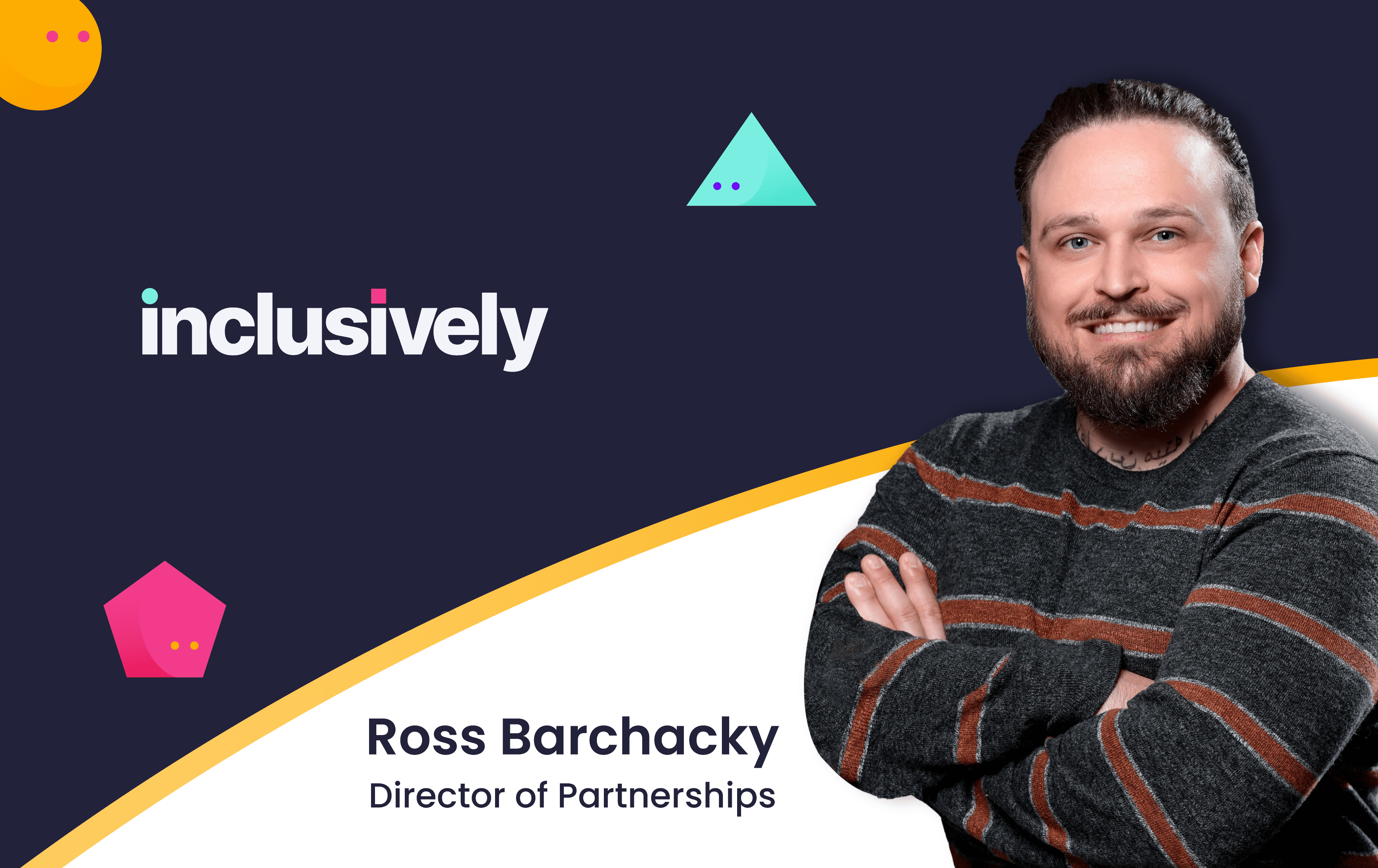At Inclusively, we’re proud of the work we do to help organizations create thriving workplaces that are open and inclusive to all. We’re also happy to be a company that offers the same to our employees. Many of our team members feel safe disclosing a disability because they know they will be welcomed and supported as they are.
In our Employee Spotlight series, we look forward to introducing you to some of our teammates who are sharing their stories with the world. We hope these pieces provide a broader understanding of how accommodations in the workplace can create healthier work environments and cultures across the board.
How Inclusively supports Ross with his skills and accommodations
Ross is a 17-year veteran and was injured while in the service. He attended many workshops to help translate his skills into the workforce when transitioning from the military, but after his career counselor at the Department of Veterans Affairs introduced him to Inclusively, he immediately knew what he was missing. While Ross was learning valuable lessons about “translating skills” and “rocking the first interview,” he was not seeing immediate results. “I felt that I was working so hard to meet the employer where THEY were, as opposed to meeting them in the middle,” Ross shared.
“I also have a service dog (Perrin), need different types of assistive technology, and have some limited mobility because of my injury,” said Ross. “During my profile creation on Inclusively, I quickly saw that this is what my experience up to this point was missing — the opportunity to have an open and transparent conversation around my disability and the accommodations I need.”
Learn more about Ross’ experience with Inclusively in a recent podcast interview.
Ross includes accommodations as a difference between good and bad culture
When asked if Inclusively feels different from other places he’s worked, Ross’ first answer was no. “I worked with a small team of professionals in the military and while we each had our specialty, we also trusted each other to rise to the occasion should there be a need,” explained Ross. “If the team medic went down, we needed to know that we could still survive as a team.”
Ross shared that he feels the same way at Inclusively. “From the leadership to the interns, I feel a strong sense of passion and a desire to learn that allows for meaningful cross-functional collaboration,” said Ross. “Any success I’ve seen, I would attribute to the way our leadership enables every person to be their best selves.”
He went on to say that on the other hand, Inclusively feels completely opposite of organizations where people are encouraged to hide their disabilities. “This could include mental health after returning from a difficult deployment, or physical health when trying to push through pain, but there’s a culture and a mindset that often keeps people from being able to get out of their own way when it comes to seeking help or accommodations,” Ross continued.
Just as the military has more and more programs out there to get soldiers what they need, employers are realizing that they must achieve more diversity in the workplace and make accommodations the norm. Inclusively arms employers with the knowledge and tools to meet candidates on equal ground, which leads to a positive first experience across the board.



